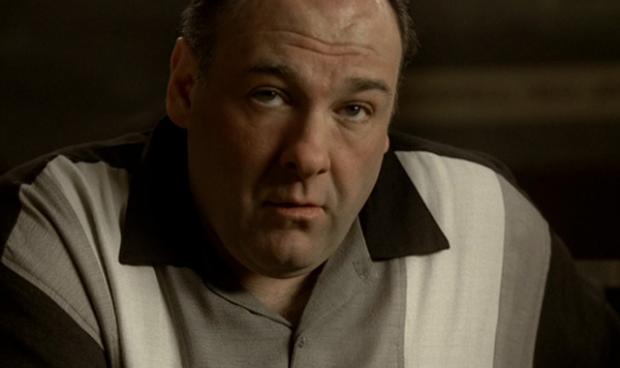The Sopranos ending: David Chase goes into more detail than ever on that final scene

Your support helps us to tell the story
From reproductive rights to climate change to Big Tech, The Independent is on the ground when the story is developing. Whether it's investigating the financials of Elon Musk's pro-Trump PAC or producing our latest documentary, 'The A Word', which shines a light on the American women fighting for reproductive rights, we know how important it is to parse out the facts from the messaging.
At such a critical moment in US history, we need reporters on the ground. Your donation allows us to keep sending journalists to speak to both sides of the story.
The Independent is trusted by Americans across the entire political spectrum. And unlike many other quality news outlets, we choose not to lock Americans out of our reporting and analysis with paywalls. We believe quality journalism should be available to everyone, paid for by those who can afford it.
Your support makes all the difference.The Sopranos was such a masterpiece start-to-finish that it's a bit of a shame everyone obsesses about just its final shot, but obsess they do. Creator David Chase is usually a bit cranky when asked about it, not really getting why it's so controversial or talked-about - but this week he actually gave a pretty in-depth response.
Talking to the Director's Guild magazine, he explained how Journey's Don't Stop Believing played a much bigger role than just a typical diner jukebox song.
'I love the timing of the lyric when Carmela enters: ‘Just a small town girl livin’ in a lonely world, she took the midnight train goin’ anywhere.’ Then it talks about Tony: ‘Just a city boy,’ and we had to dim down the music so you didn’t hear the line, ‘born and raised in South Detroit.’ The music cuts out a little bit there, and they’re speaking over it. ‘He took the midnight train goin’ anywhere.’ And that to me was [everything]. I felt that those two characters had taken the midnight train a long time ago. That is their life. It means that these people are looking for something inevitable. Something they couldn’t find. I mean, they didn’t become missionaries in Africa or go to college together or do anything like that. They took the midnight train going anywhere. And the midnight train, you know, is the dark train.'
And as for the infamous cut-to-black, he got a little spiritual.
'I thought the ending would be somewhat jarring, sure. But not to the extent it was, and not a subject of such discussion. I really had no idea about that. I never considered the black a shot. I just thought what we see is black. The ceiling I was going for at that point, the biggest feeling I was going for, honestly, was don’t stop believing. It was very simple and much more on the nose than people think. That’s what I wanted people to believe. That life ends and death comes, but don’t stop believing. There are attachments we make in life, even though it’s all going to come to an end, that are worth so much, and we’re so lucky to have been able to experience them. Life is short. Either it ends here for Tony or some other time. But in spite of that, it’s really worth it. So don’t stop believing.'
This confirms what we already knew, that Tony is really neither alive nor dead at the end (Schrodinger's wise guy as I like to call him), but it does give the scene a more uplifting spin. The take-away thought was not intended to be 'death is coming for you at any moment' but to do with appreciating life and its diverse experiences while we have it.
Join our commenting forum
Join thought-provoking conversations, follow other Independent readers and see their replies
Comments